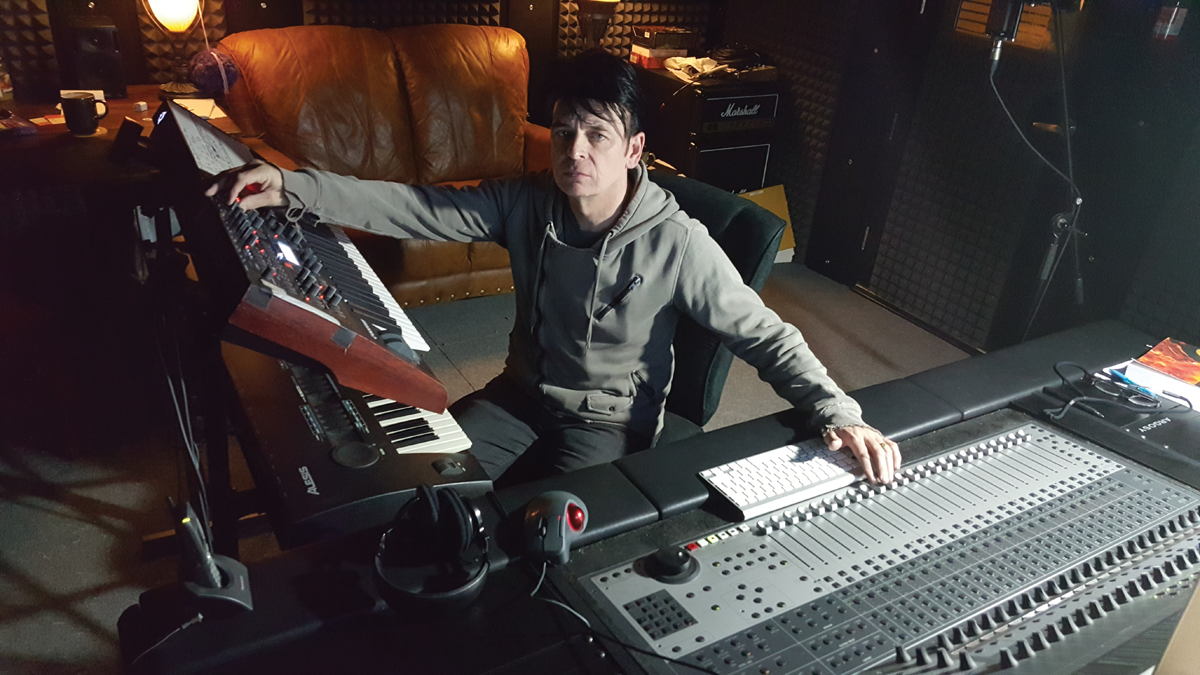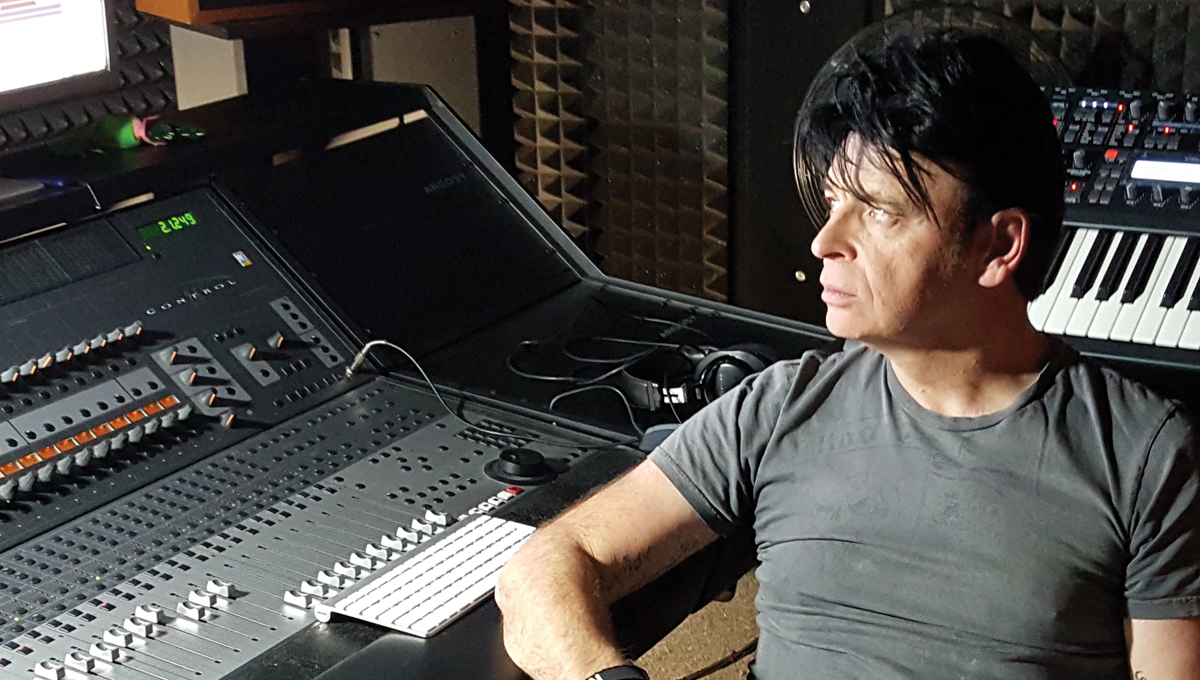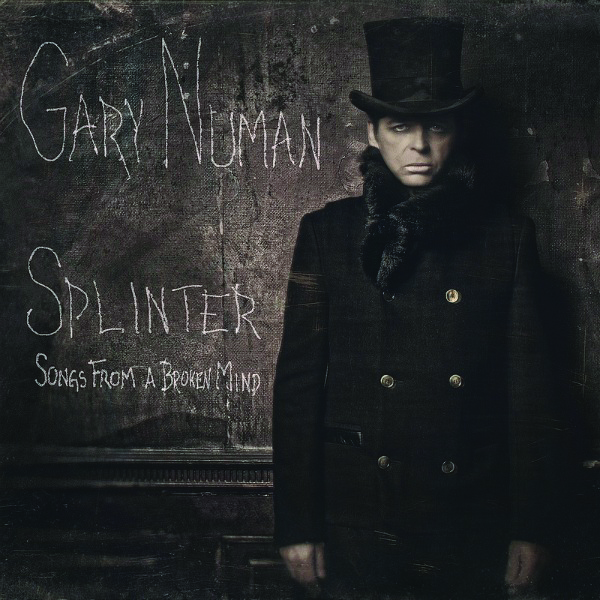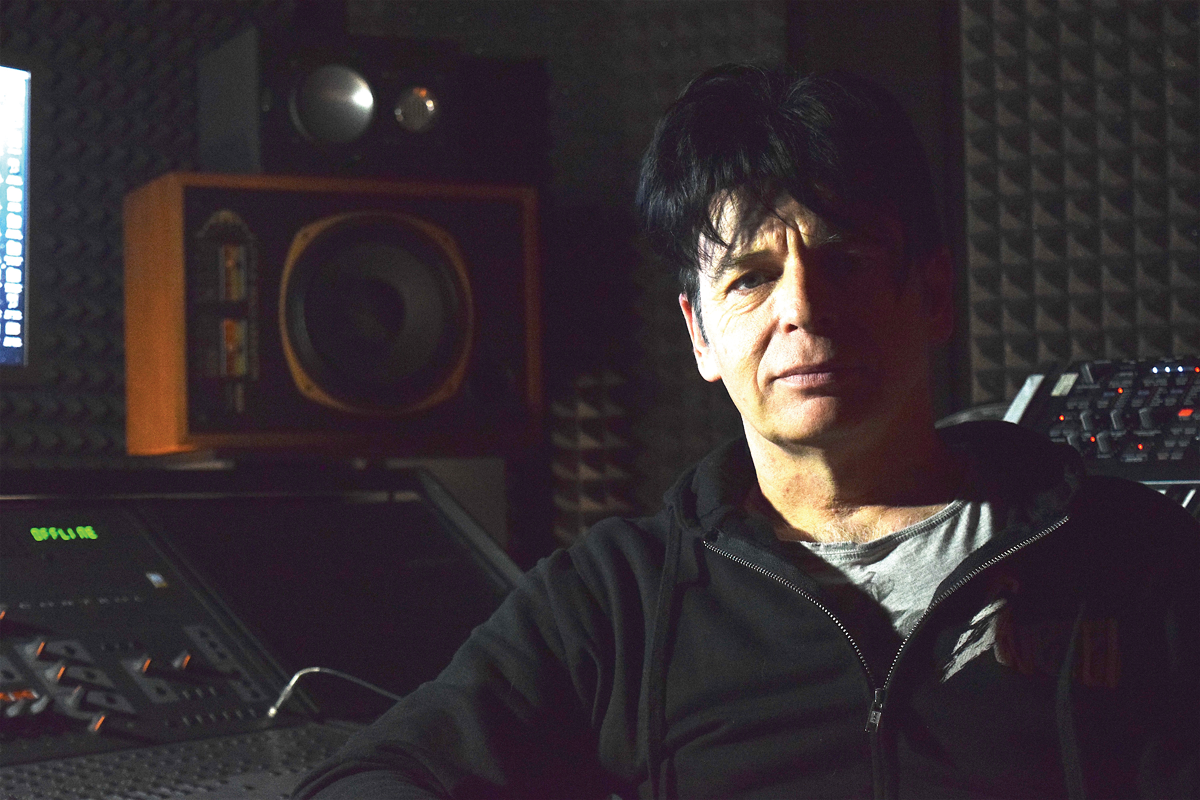Gary Numan – The MusicTech Interview
With the success of the album Splinter, Gary Numan has finally come to terms with, and is proud of, his early work – including tracks like Cars and Are Friends Electric? that kick-started synth pop and heralded a new world of music technology back at the end of the 1970s. Andy Jones meets a very […]

With the success of the album Splinter, Gary Numan has finally come to terms with, and is proud of, his early work – including tracks like Cars and Are Friends Electric? that kick-started synth pop and heralded a new world of music technology back at the end of the 1970s. Andy Jones meets a very English man in LA and finds someone more at home with today’s studio technology, but still coming to terms with newfound levels of respect…

You could argue that Bob Moog was the guy who did more for the advancement of music technology than any other person in history – this was the man who brought the synthesiser to the masses, after all. But you could also argue that Kraftwerk put the sound of the synth on the music-making map.
They exported their robotic noises Stateside and contributed to and informed – heck, some even say formed – techno and hip hop. Indeed, such is the hushed reverence that these German robots are held in, it surely can’t be too long before some kind of hi-tech religion starts.
Yet the person who I would say did more for the ‘tech’ in MusicTech – albeit unwittingly – was Gary Numan. While Kraftwerk impressed the beardy geeks with 22-minute tracks about motorways, while The Human League stayed in the lab in the midst of their white-coat phase in Sheffield (pre-girls, pre-pop and pre-hits) and John Foxx’s Ultravox impressed the art school with their synth rock, it was Gary Numan who picked up a Moog, used the first sound he played on it for the track
Are Friends Electric? and suddenly, everyone wanted a synth. He’d hate to admit it, but the sound and popularity of the instrument wouldn’t be quite where it is now without him. Indeed, John Foxx tells us (in an interview for our sister magazine, Classic Pop): “Gary triggered the whole synth thing off in 1979. It was an instant changeover and, of course, very welcome for everyone who was doing that sort of thing – it was great.”
But over the last 30-odd years, Gary has had a hard time coming to terms with the impact he made. Never one to dwell on the past or be retro, he has struggled to move on, to get ‘out of the shadow’ caused by numerous number-one hit albums and singles at the end of the 70s and start of the 80s.
“I was very sensitive to things that put you in an era,” he tells us now. “I’ve had a very long career and it’s still going. I might not be having number-one singles, but I am still having an ongoing career.”
You’ll notice he now describes this sensitivity in the past tense. It was the album Splinter that not only injected new life into Numan’s career, but also helped him come to terms with his past. Splinter was released a couple of years back not only to huge acclaim, but it also became an album which, when played live, actually went down better than Numan’s classic material.
“It happened regularly where we’d say ‘we can’t believe that that song did better than Cars’,” Gary recalls. “I never thought that would happen and it was lovely. It really did feel like, ‘I’ve finally done it, I’ve moved on!’, and as soon as that happened, it made me feel different about the old stuff.”
“Here I was with magazines making Splinter Album Of The Month, saying it was the best album I’d ever made, better than Replicas and The Pleasure Principle, which are now regarded as my classic albums. When that happened, I suddenly found myself in a position when I could look back on my catalogue and be proud of it, as it’s not a ball and chain around my ankle – now, it’s something I could actually use; not only have I done Splinter, but I did all of that cool stuff back then that you talk about as being classic. It has become something that I can now brag about rather than keep at arm’s length.

“My whole way of life is about ‘what are you going to do next?’ That’s what I find exciting. That is still the case, but I now have two ends of my career: the beginning of me which people will come and see but now I have Splinter – two guns rather than one! And the longevity has become something to be proud of, having albums out in so many different decades. It is something cool, whereas before, I didn’t want people to know I was about in the 70s. I wanted to keep that quiet!”
On the Up
So, Gary’s move to LA three years ago seems to have paid dividends. It was a move, in part, to get more film work (although he has since shifted his targets on this one: “I don’t really want to be making film music now, because I still love doing my albums, I still love touring, I love the life I’ve had, more than ever, actually, and I don’t want to get rid of it!”) but more for family reasons, and the fact that he fell out of love with England: “For the first year, I didn’t miss anything, just mum, dad, brother; the second year, I missed a few things, visiting the odd castle! I missed that history, and the green colours, and the third year, I’ve started missing it more.”
And Gary does like his castles. He might miss his English visits, but he’s more than made up for it by buying a castle. It might be a modern one, but it comes complete with secret staircases, apartments, turrets and a 200-strong sword collection, and we’ll come to the studio shortly… So everything is pretty rosy, except knowing Gary, we’re not quite there yet.

With Splinter, he regained something of a peak, but has now put the pressure on himself with its follow up. Not only that, he’s decided to do it by way of PledgeMusic, an option taken by an increasing number of bands wishing to avoid the traditional and less financially viable record-contract route and fund a release by way of this crowd-funding resource.
Numan announced the PledgeMusic project at the end of last year and quickly reached double his target. Like other bands, he offered many more options to buy than just a physical CD or a digital download of the new album.
There are signed instruments including classic synths (quickly snapped up, sadly), plus VIP events and all sorts of packages to include fans and keep them in tune with the album as it develops.
Gary explains why has he decided to follow this particular funding route… “It’s not about funding, funnily enough. I had a real chip on my shoulder about crowdfunding at one point. It always seemed to me when it started a few years ago, that people who did crowdfunding were a little bit desperate, and needed the money. I wasn’t down on it, I actually thought it was a good thing for people to be doing, but I didn’t want to be seen as one of the people that needed to do it, ‘cos to be honest, I’m doing alright and I have my studio, so I can make albums pretty cheaply anyway.
“Instead, I see it it as a way of trying to circumvent some of the layers that get between you and the audience, so I’m there [points to studio] making an album and a year later, it comes out as this shrink-wrapped item for the fans. But a lot of things happen in between, and there are a lot of people in between, each one taking a bit, and I wanted to try and find a way of being more direct with fans.
“With the conventional label-and-distribution route I did notice, with Splinter, that the number of albums you sell compared to money you make now is incredibly disappointing. And as an independent artist and without a record company giving me stonking great advances, I have got to do whatever is possible, so Pledge is a way.
“I also wanted more control over it; I wanted to give fans what they wanted without people interfering. Essentially, it’s controlling things myself and making sure I owned it at the end of the day, so if a sync offer comes in I can just say ‘yes’, rather than email everyone for two days getting people to agree it – you lose things that way.”
But letting fans in on the process can obviously be both a blessing and a curse as can having a deadline to work to… “I do find making albums tough, and I thought it [the PledgeMusic deadline] would give me the necessary push. Having a really heavy deadline to work to is normally a good thing, but the problem I have got is I’m doing 18 hours of organising a day at the moment, and it’s been a bit of a nightmare and I’ve not been working on the album. I should have been doing weekly updates, but I’ve not been doing nearly as much as I should have, to be honest.”
Surely there is scope to move the deadline now he has set the process up to give himself longer?
“No, I’ve committed to it,” Gary replies. “But I don’t think it’s the end of the world. And actually, at the moment I’m bothered by it and I’m desperate to be getting out there in the studio, which is good in its own way… and I don’t want to lose that motivation.”

A Typical Track
So how does a Gary Numan track come together?
“Normally, when I did Splinter, I’d get up in the morning, sort the kids, they would go to school, and I’d do a bit of email and I’d like to be over in the studio by 10. So I’d start then and it was quite regimented because of the children, actually – they make you have an organised life to make it all fit. So say that was a Monday, by the end of the day, I’d like to have a basic song structure, melody, chords, piano, maybe some drum loops in the background.
On Tuesday and Wednesday, I’d flesh that out and start adding production layers to it, and by Thursday morning, I’d have a working song under way. Then I’d do rough or guide vocals.
I’d write the melody for them on the piano and then start singing it – you adapt once you get your voice in and add things to it. So Thursday would be doing that – not singing any words, just singing any old nonsense that comes to mind just to do the phrasing, where it should be, and from that, you can begin to get an idea of which points of the song that will need certain words.
I know, for example, that if I’m going to be singing at the top of my range or where it needs any kind of power, because I don’t have a powerful voice that there are certain words that work better than others. So anything that has an ‘aw’ sound at the end of it is great for singing really loud or really high because it is easy. Anything with an ‘ee’ or an ‘ind’ or ‘find’, ‘kind’ or ‘mind’,
I can’t sing them loud or high – they sound a bit feeble. But ‘or’, ‘war’ or ‘law’, they are easier, so you work out what it’s going to need and that helps you with the lyric a little bit. The mood of the song and certain phrases come out naturally when you do the gobbledy gook, certain phrases come out and form the lyric.
On Friday, I do the proper lyric, hopefully sing the proper finished vocal and that is my demo done with a finished vocal.
“So that is the one-song-a-week turnaround as I was doing with Splinter, and at the end of that week that song would go on the shelf and I would try and get 15-20 of them done. Then I’d go back through those and spend another week with each one finding things to make them better.”